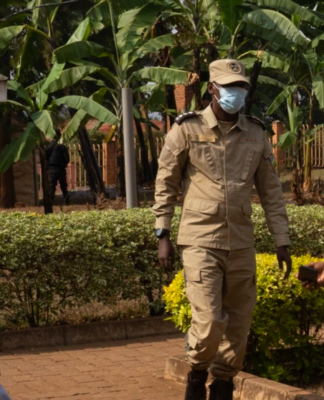In a landmark decision on November 15, 2023, the United Kingdom’s Supreme Court delivered a blow to the government’s immigration policy, ruling that the plan to send asylum seekers to Rwanda is “unlawful.” The unanimous judgment is a significant victory for human rights advocates and marks a critical moment in the ongoing debate over the treatment of asylum seekers.
The court’s decision, echoing the Court of Appeal’s findings, emphasizes the substantial risk of ill-treatment faced by asylum seekers sent to Rwanda, potentially violating international and domestic obligations against refoulement. The court pointed to Rwanda’s troubling human rights record, including extrajudicial killings, deaths in custody, enforced disappearances, torture, and restrictions on media and political freedoms.
The United Nations High Commissioner for Refugees (UNHCR) presented damning evidence of systemic defects in Rwanda’s asylum system, lack of independence in the judiciary, and a 100 percent rejection rate for individuals from conflict zones like Afghanistan, Syria, and Yemen. The court recognized that Rwanda lacked the practical ability to properly determine asylum claims and protect individuals from refoulement.
Despite the court’s decision, Prime Minister Rishi Sunak has pledged to introduce emergency legislation to confirm Rwanda as a safe destination. Critics argue that such legislation cannot override factual concerns and international obligations.
This ruling comes in the wake of a controversial agreement between the UK and Rwanda in 2022, which faced immediate opposition from human rights organizations, including Human Rights Watch. The UNHCR presented over 100 allegations of refoulement, indicating that the problematic practices persisted even after the agreement was finalized.
In response to the court’s decision, the UK government is urged to abandon the unlawful Rwanda deal and reconsider its approach to asylum seekers. Human rights activists argue that this should serve as a warning to other governments contemplating similar arrangements and emphasize the need for a fair and compassionate asylum system.
Suella Braverman’s Resignation Letter Adds to Government Woes
Simultaneously, former Home Secretary Suella Braverman’s resignation letter has intensified challenges for Prime Minister Rishi Sunak’s government. In a scathing letter, Braverman accuses Sunak of repeated policy failures and broken pledges, particularly on immigration.
Braverman alleges that she struck a secret deal with Sunak to join his cabinet, providing crucial support for his leadership bid. However, she contends that Sunak’s compromises during the passage of the Illegal Migration Act left the Rwanda policy vulnerable to legal challenges, even if the Supreme Court deemed it lawful.
The former home secretary criticizes Sunak’s “magical thinking” and failure to prepare a credible Plan B. She asserts that the government’s approach is not working, citing record election defeats and a lack of effective resets.
Braverman’s letter comes on the eve of the Supreme Court’s ruling on the Rwanda plan, adding political tension and potential divisions among Tory MPs over the European Convention on Human Rights (ECHR). Her resignation highlights internal discord within the Conservative Party and raises questions about the viability of the government’s immigration policies.
As the UK grapples with the fallout from the Supreme Court’s decision and internal political challenges, the future of its asylum policies remains uncertain. The rulings and resignations underscore the importance of striking a balance between national security concerns and upholding international human rights standards.






























































